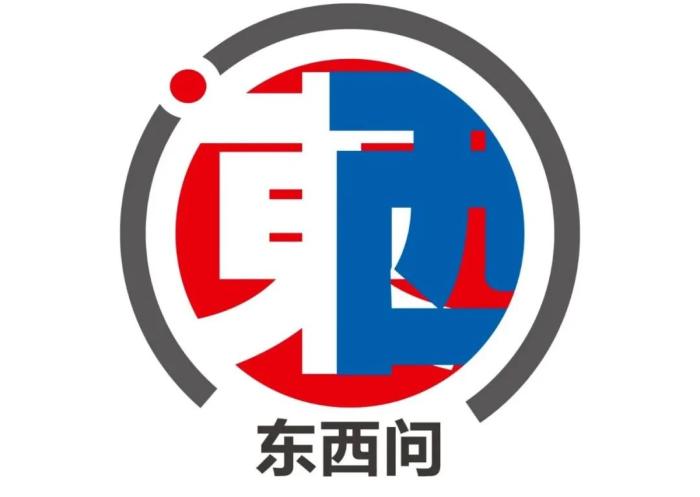Wendell Wallach, Yale University: China's Artificial Intelligence Ethics Construction Is Experiencing A Stage Of Rapid Development
Wendell Wallach, Yale University: China's Artificial Intelligence Ethics Construction Is Experiencing A Stage Of Rapid Development
"I was talking about the ethical issues of artificial intelligence 10 years ago, but at that time, maybe dozens of people were interested. Now, thousands of people are willing to participate in a conference on this topic." Science and Technology, Center for Bioethics, Yale University Wendell Wallach, director of the discipline of ethics, told the reporter of the Daily Economic News.
When the ethical construction of artificial intelligence has gradually attracted attention worldwide, China's participation is just right. As the initiator of the International Conference on Artificial Intelligence Governance (ICGAI), after hosting the New York Summit that assembled many leaders in the artificial intelligence industry, Wallach transferred to Beijing on May 21 to participate in the Chinese artificial intelligence ethics sponsored by Taihe Think Tank. Workshop on building a governance network. Although he didn't know much about China's situation, he could already clearly feel the development atmosphere here.
"Now, new technologies, including AI, are developing too quickly and quickly form systems, but because of their huge disruptiveness, we should take action as soon as possible to allow the development of ethics and technology to be carried out simultaneously," Wallach told Reporter, "I feel that this process will be very rapid in China."
Technology and ethics should develop simultaneously
"After a new technology is born, it will always go through a stage of rapid development. Before we can clearly consider what we want and what we don't want, we quickly form a system. And these technologies will always bring about disruptive changes. We are tired of maintaining control over changes and have no time to reflect. We often wait until the change starts to slow down before we enter the adjustment phase. "Walach said.
One example is that in Britain, the child labour problem arising from the First Industrial Revolution did not enter the legislative resolution process at the national level until the 19th century. Time is advancing to the present, and the fourth round of industrial revolution with artificial intelligence as the core is emerging, more people are beginning to realize that when science and technology have not yet formed a system, ethics can be introduced in a timely manner so that the ethical governance mechanism can be established more smoothly.
Xue Lan, dean of the Su Shimin Academy of Tsinghua University, pointed out at the seminar that China is now in a "special stage". “Because China has actually missed the first three industrial revolutions, and despite missing some opportunities, it has also gained benefits – we don’t have to worry too much about ethical risks,” he said. “Now, China joins industry with other countries. The stage of revolutionary technology development and application, so this issue is included on the agenda.”
In Valach's view, it is particularly important to cultivate a matching way of thinking that technology and ethics should develop simultaneously. The world needs to master this ability to judge what exactly you want when facing disruptive technology.
However, according to Wallach's observation, China's artificial intelligence ethics construction has begun to enter a stage of rapid development. "A few years ago, there were only a few technicians in China talking about ethical issues, and now many large companies have regarded it as an important issue." He told reporters, "I see the soil for development here, although I don't know what it is now." How widely discussed the topics are, but I feel the process of development will be very rapid.”
Participation in international governance can be initiated first in China
"China's artificial intelligence industry can enter the top two in the world, and with China's huge population, its participation in the international mechanism of artificial intelligence ethics will affect too many people." Based on this understanding, Wallach is exploring the establishment of a global artificial intelligence intelligence. When I was on the Internet, I began to consider China's joining soon.
But Valach also understands that participation from more countries also means increased difficulty. “Although some countries have put forward ethical principles, they have no specific paths to implement, so new standards are still needed to be established at the global level,” said Wallach. “Because different countries have different values, they are building global networks. There will be many differences when it comes to it.”
Faced with this problem, how should China participate in the establishment of international rules?
In Valach's view, we can take the lead in thinking from a domestic perspective. "First of all, China can clarify its ideas for developing artificial intelligence ethics and public welfare, such as paying attention to ethical issues, promoting dialogue between different stakeholders, and expanding this dialogue to the public level."
He mentioned a trade-off method - when artificial intelligence conflicts with public welfare, a prudent supervision method can be chosen, while leaving room for moderate development for technology, the ban adopted is on the premise of protecting the interests of the public , conditional liberalization, in this way, enable the public to understand the boundaries of artificial intelligence ethics.
In addition, he also believes that in professional fields such as artificial intelligence, the government can also include more voices of scientists and technology practitioners to make more forward-looking decisions.
"Now, although the development of ethics is still in its infancy for every country, China's artificial intelligence ethics ecosystem has begun to be established," said Wallach. "I think China has a greater responsibility to participate in international mechanisms." In the construction of the project, it is best to speed up the pace.”
Daily Economic News





![[Speaking By South China University Of Science And Technology] Humans Give Artificial Intelligence Ethics, And Breakthroughs In The Direction Of Biological Evolution Are The Key](https://lcs-sfo.k4v.com/sites/38/article/2025/02/13/63/images/7dd34943ddad152fb2596da1e7a2f9c5.jpeg)